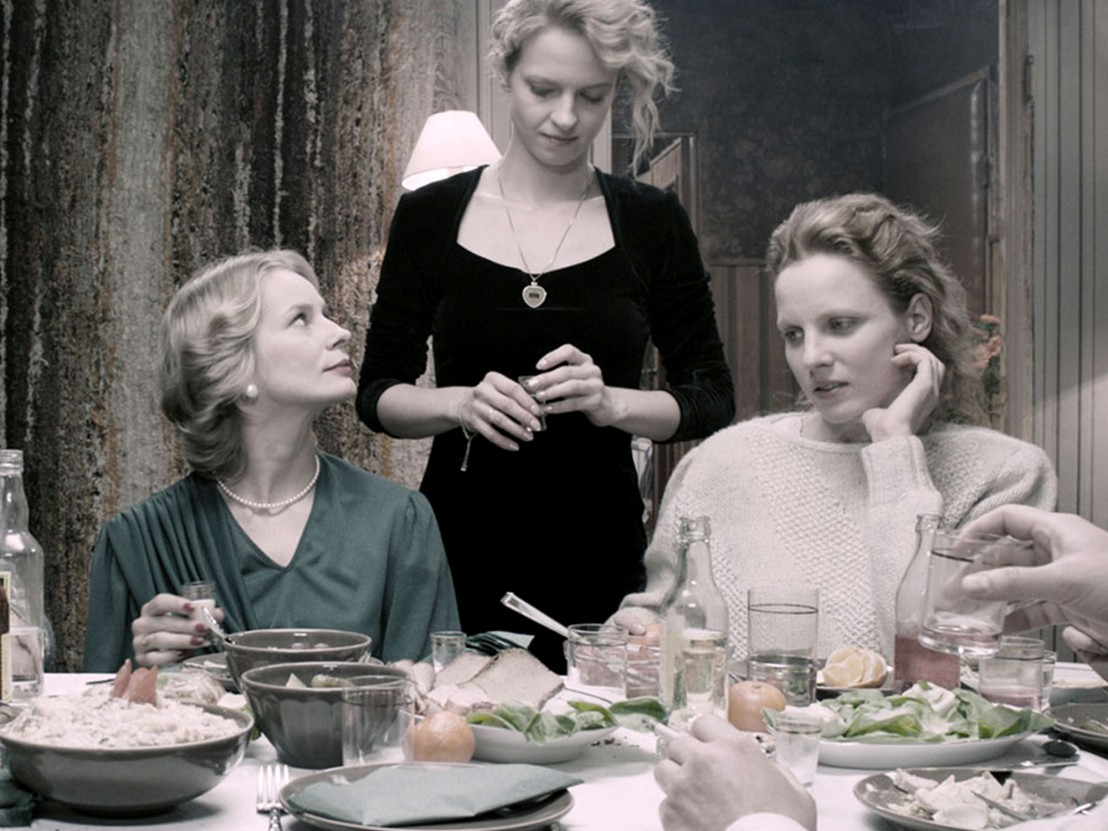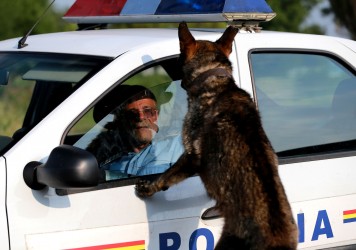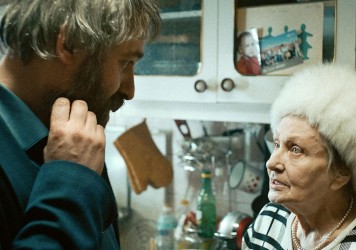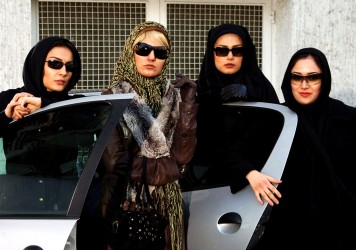
New features from Cristi Puiu and Ali Abbasi brought a gothic flavour to this year’s festival.
To discover an international film festival that feels more like a passion project than an industry-oriented event is a rarity. Now in its 15th year, the 2016 Transilvania International Film Festival felt like just that; offering up an eclectic, carefully curated programme. Set in Transylvania’s historic capital, Cluj-Napoca, the screenings spanned numerous venues, most of which are nestled among the Gothic churches and modern apartment blocks, across the city.
Coming to terms with the past is a prominent recurring theme in contemporary Romanian cinema, with recent films such as Cristian Mungiu’s 4 Months, 3 Weeks and 2 Days and Radu Muntean’s The Paper Will be Blue reflecting the trauma of Nicolae Ceaușescu’s Communist regime. Memory of life between 1965-1989 continues to inform the current generation of Romanian filmmakers, some of whom presented new films in the Romanian Days sidebar. The growing international success of directors such as Cristi Puiu, Radu Jude and Corneliu Porumboiu, means the festival is now seen as a solid launching pad for new Romanian cinema. Here are five films to look out from this year’s programme.
Gabriel Achim’s The Last Day, a dark comedy about faith, fidelity and forgiveness, stood out among a strong selection of Romanian films. A road-movie about dilemmas of the soul, the film charts the journey undertaken by four men accompanying their friend to a nearby monastery to start a new life as a monk. Theology and philosophy are discussed with lighthearted abandon en route, with the conversation growing more intense as the men make their way back home. The final half-hour sees the jocular humour take a turn for the worst during a vodka infused breakfast of barbecued meats and drunken boasting that teases out the film’s big reveal. A commanding and intellectually gratifying work from a director worth keeping an eye on.
Before the screening of Bogdan Mirică’s Dogs, the audience were treated to a surprise screening of Why Me? a short film by Dan Chisu about a group of young Romanian directors frustrated by how their films are constantly overlooked by premiere league festivals like Cannes and Berlin in favour of their better-known compatriots. It was a rallying call for a different kind of Romanian cinema, a call Mirică apparently chose to accept. His film’s premiere at Cannes this year divided critics.
Although the film was praised for its technical accomplishments, many found it too derivative and indebted to popular American cinema. It would be a shame if their disappointment was a direct result of the film’s refusal to adhere to the social-realist aesthetic that has become synonymous with the Romanian New Wave, as Mirică has publicly stated that Dogs is an intentional attempt to carve out a place in the mainstream, albeit while maintaining a distinctly Romanian flavour. His approach clearly resonated with the TIFF jury, who awarded film the Transilvania Trophy.
A young Romanian housekeeper signs up for more than she bargained for in this gothic horror by Iranian-born, Denmark-based director Ali Abbasi. Cosmina Stratan, best known for her prize winning performance in Cristian Mungiu’s Beyond the Hills, plays Elena, a former accountant from Bucharest who moves to Denmark to work as a maid so she can save enough money to buy an apartment for her family. An example of what happens when the privileged are forced to encounter the realities of the poor, Elena’s employers are a wealthy couple living a self-reliant lifestyle in a cottage set deep within the Danish countryside, far removed from all of life’s modern amenities.
It’s a setting that harks back to the golden age of horror, before advancements in technology increased the implausibility factor. One day they ask her if she’ll act as a surrogate so they can have a child. After some consideration she agrees, seeing it as a quick way to raise the funds she need. The pregnancy goes well at first, until Elena’s body starts to reject the fetus. Pregnant with malignancy and Gothic dread, Shelley uses the biological occupancy of child bearing to construct a deeply unsettling tale about the wider-reaching effects of economic migration.
Polish director Tomasz Wasilewski returned to the festival as a member of the Jury. He was last in Cluj in 2013 when his second feature, Floating Skyscrapers, won the best director prize. This year he brought along United States of Love, a formidable study of four women’s search for fulfilment in post-communist Poland.
Lensed by Moldavian cinematographer Oleg Mutu, best known for his work on The Death of Mr Lazarescu and 4 Months, 3 Weeks and 2 Days, this was easily the most visually striking and formally audacious films to screen at this year’s festival. Mutu’s exquisite palette of washed-out greys and blues is beautifully attuned to the interior chaos consuming his characters. By positioning female isolation within the social context of a nation experiencing a newfound sense of freedom this agonising tale of political and psychological transformation blossoms into a more universal allegory of repressed female desire.
The raucous applause that greeted Cristi Puiu as he took the stage to introduce his latest film is testimony to how important a role he has played in Romanian cinema. Sieranevada is a cramped family drama where the past and present collide and the absurdities of daily life are laid bare. Almost three hours are spent in the poky Bucharest flat of Nasu Mirica (Dana Dogaru) as her family bicker about the past, and share old stories during a memorial service for her late husband Emil.
Puiu sets his camera up in the corner of the corridor, pressed against the wall as if it were Emil’s spirit observing each guest as they come and go, baring witness to the bubbling animosity and multiple layers of conflict that ensue. Sieranevada is primarily concerned with the past and how it continues to haunt the nation, it’s a ghost story, albeit one without any semblance of horror. It’s also a comedy without any jokes; with the script’s pitch-black humour evolving naturally as we gradually get acquainted with each family member. This nuanced portrait of Romania’s middle class is a touching and often hilarious inquiry into communication, familial relations and how we interpret memory.
Published 7 Jun 2016

By Dana Knight
Directors like Bogdan Mirică are challenging their national cinema’s austere image.

One of the progenitors of the Romanian New Wave returns to the Cannes competition with a rambling family drama.

By Sarah Jilani
Despite facing severe restrictions Iran’s most important filmmakers continue to give its people a voice.